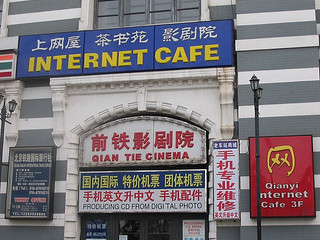According to the Young Digital Mavens survey conducted on around 1 000 American and 1 000 Chinese youths, aged:
Millions of young Chinese are embracing the internet as a discreet space for their thoughts and emotions — almost five times as many Chinese as Americans surveyed said they have a parallel life online (61% vs 13%).
Some key insights, also covered by the Economist:
- 82% of young Chinese agreed that “interactivity helps create intimacy, even at a distance,” compared with 36% of Americans.
- Nearly two-thirds (63%) of Chinese surveyed agreed that “it’s perfectly possible to have real relationships purely online with no face-to-face contact”. American equivalent: 21%.
- Seventy-seven percent of the Chinese respondents agreed that “the internet helps me make friends”; only 30% of Americans said that the internet helps their social life.
- Two-thirds (66%) of the Chinese respondents said that “online interactions have broadened my sense of identity”, compared with 26% of Americans.
- More than twice as many Chinese youth admitted they sometimes feel “addicted” to living online: 42% vs 18% of Americans.
So, Chinese youth use the internet as a site of identity building, beginning and maintaining relationships and generally living their lives. The influence of culture is hugely apparent. Offline social norms in China are more conservative than those in America.
What about South Africa? Our youth have digital lives through their mobile phones. Do they build their identities through this? Expand their social networks? Want to be educated via this medium? And what influences do the different cultures in our country exert on how technology is adopted and used for communication and socialisation?
Knowing this would be extremely interesting. Damn, somebody do some research!



